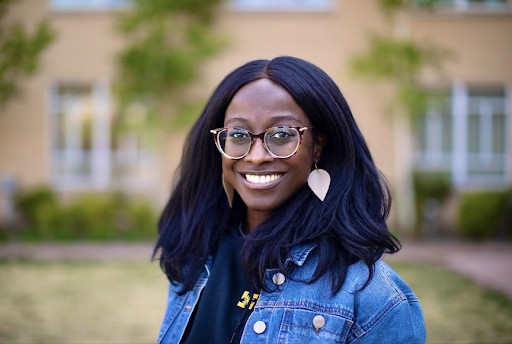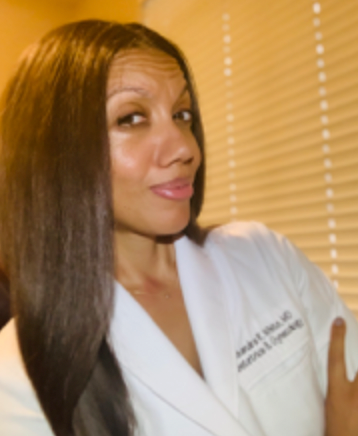

At the height of the 2020 COVID-19 Pandemic, the healthcare system of the United States was laid bare, publicizing a well-documented fact: the entire system was unprepared for a major public health crisis, and had been losing new Black mothers at an alarming rate for years. In 2020, the Black maternal mortality rate was over 55%, according to information from the CDC. The year prior, Dr. Rachel Bervell, along with several colleagues, received a grant to create a more inclusive and holistic lesson plan for obstetric and gynecology students. Its ultimate goal was to help reduce maternal mortality among Black women and other vulnerable women.
As the eldest of three children born to supportive, education-forward Ghanaian immigrants, Dr. Bervell entered Harvard University at 16. Prior to attending medical school at The University of Chicago College of Medicine, Dr. Bervell demonstrated her commitment to healthcare and health education by sitting on the March of Dimes Youth Council and working as a student scholar with Patient-Centered Medicine. After graduating, and serving as a mentor and a founder of a non-profit offering basic and educational assistance to children in several African countries, Dr. Bervell moved into healthcare education. In October of 2022, Dr. Bervell joined the Baltimore City Health Department as a Public Health Consultant.
Throughout her education and professional journey, Black maternal health was always a central and motivating concern. When asked about her greatest public healthcare concerns, her easy answer was: “We have an ongoing Black maternal health crisis…which has been known and acknowledged in advocacy circles for years. I think that’s the number one problem.” She also mentions that, in light of the 2022 Dobbs decision, reproductive rights stand front and center in current conversations about healthcare access.
Though referendum after referendum has seen states’ voting majorities overcome proposed laws that would further restrict the procedure, or ban it entirely, Dr. Bervell’s concerns hardly stop at abortion rights: problems with overall healthcare access persist, be it transportation, access to a physician, or the proximity to wholesome foods. “If you live next door to a doctor, and you see a doctor every day, that’s not going to keep you healthy if the closest grocery store is hours away on three different buses. It can be hard to get the fruits and vegetables you need to be healthy, and that’s part of healthcare.”
During her years in medical school, Dr. Bervell was struck with an important fascination in psychology and the social sciences. Her passion was medicine, but she understood that the various biological sciences weren’t the entire story: the stress of living in a racially discriminatory and misogynistic society takes a real and measurable toll on Black women.
“The United States has the worst maternal health outcomes of our high-income peer countries when it comes to the maternal mortality rate, especially considering as much as we spend, per capita. This is on top of the already huge disparities in outcome for Black women.” Dr. Bervell confirms heart disease as the number one killer of women in the US, adding that –isms and phobias, which call your identity and its validity into question, can affect illness. As one of the dominant non-medical drivers of health –– that is to say, environmental factors, including societal experiences, diet, air quality, work-life balance, or a lack of quality care –– stress easily exacerbates illness, or in the case of chronic conditions like heart disease, is partially created by stress. To illustrate how stress and its damage can be hereditary, she mentions the increase in psychiatric issues seen in Irish nationals after the Irish Potato Famine, as well as the generational trauma carried by Black people as a result of slavery.
Dr. Bervell’s scholarship and awareness collided in a stark and painful way with the death of a Black woman colleague to childbirth during her residency at the University of California’s Irvine Campus. “It’s like fighting the problem from the belly of the beast,” Dr. Bervell said. “You think, ‘she could have been me.’ My patients need and deserve advocacy, but with only 5% of physicians being Black, compared to a Black population of about 15% and growing, I simply can’t advocate for all of my Black patients.” Because of this, and a litany of other reasons, Dr. Bervell has been careful to maintain healthy boundaries in her work, which leaves room for more education and advocacy for more people.
Better advocacy often stems from stronger relationships and empathetic connections. In the mid-2010s, as she was interviewing for obstetrics and gynecology residencies, Dr. Bervell met another Black woman who was interviewing for residencies as well, and the pair started a text thread, adding Black women they met to exchange information and insights about different medical training programs. In 2019, that text thread became The Black OB/Gyn Project, an Instagram page for evidence-based information tailored to the experience of Black women as both patients and physicians. The social channel and accompanying website fulfill a number of communally beneficial features, including podcasts, a mentorship program, and the aforementioned suggested teaching plan for aspiring OB/Gyns. Dr. Bervell is excited to consider how technology develops over the next 20 to 30 years as a means of patient education but also has plans for The Black Ob/Gyn Project, in particular.
“What I would like it to be is first an LLC,” Dr. Bervell says. “I’d like it to be this hub of information, whether they’re dealing with fertility issues, or looking for a Black doctor. I’m scraping together enough Black providers to make a directory. We’d love to get back in front of the accrediting bodies to figure out how to incorporate the curriculums we’ve created. We’re also creating a mentorship program, which is so important to making sure that we keep up diversity, and guiding providers who aren’t sure of how to get a foothold in the specialty.”
Dr. Bervell describes herself as “deeply committed,” to being a physician, and to striving for more equitable outcomes in Black mothers’ health.
Alexandria Hicks is a writer of prose, healthcare, and advertising. Born and raised in Nashville, Tennessee, she’s lived in Los Angeles, California and Houston, Texas. She currently calls New York City home.


